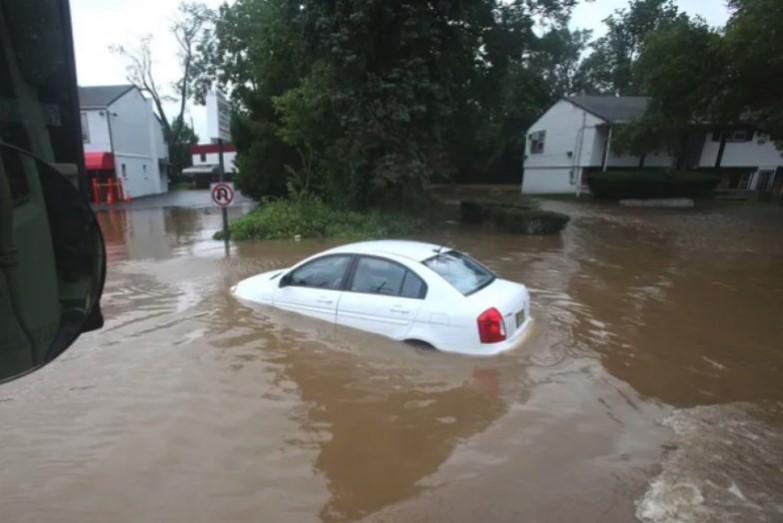
Electric vehicles and maxi-emergencies: from CTIF the fire brigade report during Hurricane Ian
Electric vehicles catching fire after being submerged in salt water during Hurricane Ian, and from this experience comes the narrative of politicians and US firefighters
Electric vehicles during a hurricane, the CTIF (International Association of Fire and Rescue Services) report
Several electric vehicles have been reported spontaneously catching fire after they have been exposed to salt water during the flooding following Hurricane Ian.
In some cases EVs catching fires after salt water exposure have allegedly burned down homes which otherwise more or less survived the hurricane.
Florida Chief Financial Officer and State Fire Marshal Jimmy Patronis raised concerns on Thursday last week about the issue, warning that corroding batteries are resulting in several spontaneous fires, according to WEAR TV.
According to the WEAR TV article, Florida is second in the United States after California, when it come to the total amount of Electric Vehicles on the road
As of August, there were more than 95,000 registered EVs in the state, which is 58,000 more EVs compared to in 2021.
“Following the storm, there have been numerous reports of EVs catching fire after being submerged in Ian’s flood waters.
These fires have proven to be extremely dangerous and last for prolonged periods—taking up to six hours to extinguish in many cases”, said Florida Senator Rick Scott in a public statement.
On October 13, the senator raised the issue of electric vehicle fires in a letter to the U.S. Department of Transportation to take action regarding the dangers of EVs after being submerged in water.
Asking manufacturers to recall EVs until safety protocols been developed
Senator Scott is also raising the issues with manufacturers, asking if they have a plan to recall vehicles until the danger of fires from salt water submersion can be corrected, and safety protocols for batteries exposed to salt water have been developed.
In his letter to the US Department of Transportation, Rick Scott claims EVs catching fire have destroyed homes which have otherwise survived the effects of the hurricane.
He also claims it has forced local fire departments to divert resources away from hurricane recovery to control contain the fires.
Here is part of what Senator Rick Scott writes rto manufacturers regarding the safety of batteries which have been exposed to salt water:
“The current guidelines from your company on the impacts of saltwater submersion on the operability of the vehicles does not adequately address the issue.
As a result, most consumers are under the potentially life-threatening misimpression that their EVs will continue functioning properly after saltwater submersion—much like gas-powered vehicles. As increasing numbers of EVs come to market nationwide, this threat demands action by your association to develop safety protocols to properly caution consumers about this risk posed by EVs submerged in saltwater. Therefore, I request written responses to the following questions.”
Scott then goes on to list six questions to manufacturers, asking them to explain if and how they have instructed consumers about the potential dangers of salt water flooding.
Read Also:
Emergency Live Even More…Live: Download The New Free App Of Your Newspaper For IOS And Android
War In Ukraine, Draganfly’s Drones Will Bring Medical Supplies To Unreachable Areas
Russia, EMERCOM Tests Floating Crawler For Firefighters And Rescuers
Ambulance Professional Back Pain War: Technology, May You Help Me?
Exoskeletons (SSM) Aim To Relieve Rescuers’ Spines: The Choice Of Fire Brigades In Germany
UK, South Central Ambulance Service Unveils First Fully Electric Ambulances
First Electric Ambulance In The UK: The Launch Of The West Midlands Ambulance Service
Firefighters: Scotland Commissions First Electric Fire Engine


